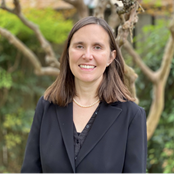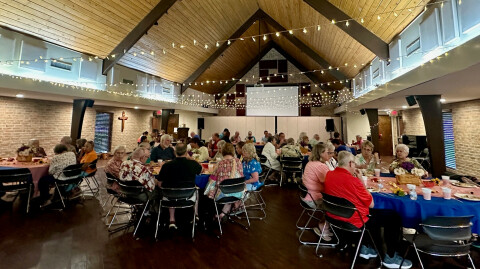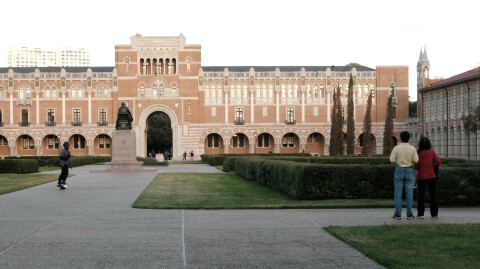You may be thinking this as you come into the church office or attend a Bible Study in the next couple of weeks. One week, I was studying for my next ordination exam. It is an oral examination based on the clergy manual. The Diocese of Texas wants all new clergy to know more about the various rules and regulations we must follow in the exercise of our ministry. This week, I have been at Clergy Conference, when all Diocese of Texas clergy gather at Camp Allen each October. I will take my exams and learn how to best serve all of you. This has made me think about the ordination process; and I wanted to share my process with all of you.
As most of you know, I was previously ordained in the American Baptist tradition. After years of personal discernment, in May of 2019, I began the ordination process in the Episcopal Church in the Diocese of Texas. The process always begins with a Discovery Retreat. This weekend of discernment at Camp Allen helps those interested understand the different ways to minister within the Church.1
After this weekend, an ordination committee was formed. For me, because of my previous ordination and being married to a priest, this was a local committee. I thoroughly enjoyed the process of questions and discernment over the next twelve weeks. At the end, I submitted my application to the priesthood.
At the end of January 2020, I went before the Commission on Ministry,2 with Bishop Ryan present, discussed my application and call. They affirming my calling and I was made a postulant in March.
The next few months were spent preparing to say goodbye to my sending parish and preparing to attend Seminary of the Southwest. In the Diocese of Texas it is extremely rare for a person going through the process to return to their sending parish.
I spent the next academic year studying the Anglican tradition and liturgical practices in Austin. It was absolutely lovely to gain deeper knowledge of the theology behind our many Anglican traditions. I loved hearing from my classmates, who were all brilliant. Our neighbor in seminary became one of my greatest inspirations. She is a faithful hard worker with a kind soul.
In January, after intense studying over the break, I took Canonical exams. The goal of these questions is to reflect upon what I had learned in seminary. While some of the questions were rather daunting, I did well and was able to engage with the questions. At the end of January, there was a vocational conference where we had the oral portions of this exam and met with the Standing Committee.3 This was all done virtually because of COVID, which meant I still spent time with my family.
I was made a candidate in February 2012. This is the next step before being ordained a transitional Deacon. I was absolutely elated and rejoiced with my friends and family. I continued to study at Seminary in the spring semester.
I had the blessing of interviewing with three churches, with St. Dunstan’s at the top of my list. So imagine my delight when the Bishop chose this church for my Curacy.
After this year of Anglican Studies, I graduated in May and was ordained as a transitional deacon. Learning to bridge the gap between the world and the parish is an important lesson for a future priest. One of the great gifts of St. Dunstan’s is having someone who is called to be a deacon alongside a brother in the Order of St. Francis; these calls help illuminate the way that all are called to serve Christ.
Now I am preparing for my two part examination for priesthood. Both are oral examinations, the first before the Board of Examining Chaplains and the second before the Standing Committee. As I said, I am ensuring that I remember the knowledge instilled during seminary and this first part of my curacy. I know with God's help, your prayers, and all I have learned that passing the examination is very likely. Know you are in my thoughts while I am away.
1 The discovery retreat is the second step in the ordination process; the first step is talking to the rector. Fr. Roman is an advocate for ministry in all forms: lay and ordained. To learn more about the discovery retreat, go to: https://www.epicenter.org/diocese/discovery-retreat/
2 The discernment process can be explained in this article from 2016 https://www.epicenter.org/article/discernmentopportunities-expand/
3 To find out more about the Standing Committee go to: https://www.epicenter.org/diocese/governance/standingcommittee/





